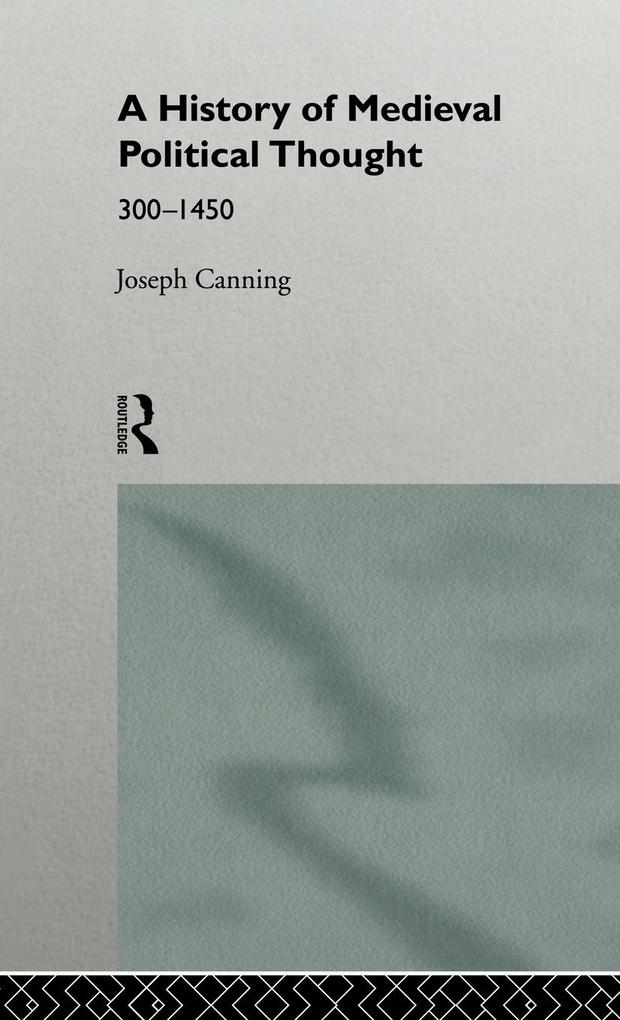
Zustellung: Mo, 28.07. - Do, 31.07.
Versand in 7 Tagen
VersandkostenfreiBestellen & in Filiale abholen:
This comprehensive and accessible volume covers four periods, each with a different focus. From 300 to 750, Canning examines Christian ideas of rulership. The often neglected centuries from 750 to 1050, the Carolingian period and its aftermath, are given special attention. From 1050 to 1290 the conflict between temporal and spiritual power comes to the fore. Finally, in the period from 1290 to 1450, Canning focuses on the confrontation of church and state ideas with political realities.
Inhaltsverzeichnis
Preface; Introduction; 1 THE ORIGINS OF MEDIEVAL POLITICAL IDEAS, c. 300-c. 750 ; Byzantium: the Christian Empire; The West ; Christian kingship; Kingship and priesthood; The claims of the papacy; The Christian world-view and its implications for the state; 2 THE GROWTH OF SPECIFICALLY MEDIEVAL POLITICAL IDEAS, c. 750-c. 1050; Carolingian political ideas; Theocratic monarchy; Consent and fidelity; The transpersonal dimension; Ideas of empire; Political ideas, c. 900-c. 1050; Rome-based emperorship; Imperial kingship; 3 POLITICAL IDEAS IN THE HIGH MIDDLE AGES, c. 1050-c. 1290; Spiritual and secular power, c. 1050-c. 1150; The languages for political thought: the revived legacy of antiquity; Classical-literary: John of Salisbury; The language of Roman and canon law; Aristotelian language; 4 POLITICAL IDEAS IN THE LATE MIDDLE AGES, c. 1290-c. 1450; Ideas of church and of state, c. 1290-c. 1350; The conflicts between Philip IV and Boniface VIII; Italy: scholastic ideas and the myth of Rome; Marsilius of Padua and William of Ockham; Juristic thought; The ruler's will and the normative structure; Territorial sovereignty; Corporation theory; Conciliar ideas; Origins; The Great Schism and the Councils of Pisa and Constance ; The Council of Basel; Conclusion
Produktdetails
Erscheinungsdatum
14. November 1996
Sprache
englisch
Seitenanzahl
272
Autor/Autorin
Joseph Canning
Verlag/Hersteller
Produktart
gebunden
Gewicht
518 g
Größe (L/B/H)
222/145/20 mm
ISBN
9780415013499
Entdecken Sie mehr
Bewertungen
0 Bewertungen
Es wurden noch keine Bewertungen abgegeben. Schreiben Sie die erste Bewertung zu "A History of Medieval Political Thought" und helfen Sie damit anderen bei der Kaufentscheidung.










